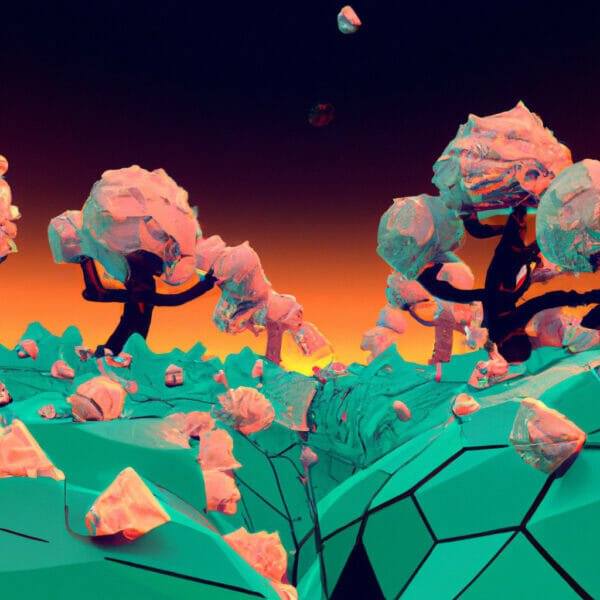Welcome to this captivating journey into the world of Lua scripting for Roblox. As gaming grows tremendously, so does the need to design tailor-made experiences for gamers across the globe. This comprehensive guide sets out to demystify Lua scripting, a powerful scripting language for creating interactive, immersive game experiences in the Roblox platform.
Table of contents
What is Lua scripting in Roblox?
Lua is a lightweight, high-level, multi-paradigm programming language designed for embedded use in applications. At its core, Lua scripting in Roblox is a means of creating, controlling, and enhancing game mechanics within the Roblox platform with the Lua language.
Why Should You Learn Lua scripting in Roblox?
The importance of learning Lua scripting in Roblox is twofold:
- Lua scripting enables game developers to customize games, creating unique gameplay experiences that can be enjoyed by millions of gamers worldwide.
- With an increasing demand for bespoke gaming environments, learning Lua scripting provides a valuable skill that sets you apart in the growing gaming industry.
The key goal here is to empower you with the knowledge to transform your gaming ideas into interactive realities on the Roblox platform.
How is Lua scripting in Roblox Accessible?
Lua is designed with simplicity and ease-of-understanding in mind, making it an ideal language for beginner programmers, yet powerful enough for seasoned professionals. Roblox further simplifies this by providing an intuitive coding environment that incorporates helpful resources to guide your coding journey. Toward this purpose, our guide ensures that learning Lua scripting is not only rewarding but also a fun and engaging process!
Getting Started With Lua in Roblox
Firstly, to begin scripting in Roblox, you must first create a new baseplate. Go to Roblox Studio, click on ‘New’, and select ‘Baseplate’.
Creating Your First Script
Now, let us delve into creating your first Lua script in Roblox. Right-click on ‘Workspace’, hover over ‘Insert Object’, and select ‘Script’.
You will now see an auto-generated script:
print("Hello, world!")Variables in Lua
A variable in Lua is used to store a value. Variables can be likened to containers, where various data can be stored for use in scripts.
local myVar = 5 print(myVar) -- this will print '5'
Arrays in Lua
Arrays or tables in Lua are versatile and can store different value types. They can be indexed with numbers or strings. For example:
local myArray = {"apple", "banana", "cherry"}
print(myArray[1]) -- this will print 'apple'Functions in Lua
In Lua, you can define a function in the following manner:
function greetPlayer(playerName)
print("Hello, " .. playerName)
end
greetPlayer("John") -- this will print 'Hello, John'You have learnt some basics of Lua scripting in Roblox. With this knowledge, you can begin experimenting with unique game development ideas on the Roblox platform. In the next part, we will delve deeper and explore some more complex examples.
Control Structures in Lua
Control structures guide the flow of execution in your program. There are three types of control structures in Lua: while, repeat…until, and for.
The ‘while’ loop continues executing while a certain condition is true. For example:
local x = 1 while x <= 5 do print(x) x = x + 1 end
This will print the numbers 1 through 5.
The ‘repeat…until’ loop is similar to a ‘while’ loop but checks the condition at the end:
local x = 1 repeat print(x) x = x + 1 until x > 5
The ‘for’ loop is used when you know exactly how many times you want the loop to execute. For instance:
for i = 1, 5 do print(i) end
Data Manipulation in Lua
Lua provides various operators for data manipulation. Here are some common examples:
local a = 10 local b = 20 print(a + b) -- Addition, will print 30 print(a - b) -- Subtraction, will print -10 print(a * b) -- Multiplication, will print 200 print(a / b) -- Division, will print 0.5 print(a % b) -- Modulo, will print 10
Conditionals in Lua
Conditionals are used to perform different actions based on different conditions. Here is an example of an ‘if’ conditional statement in Lua:
local a = 10
local b = 20
if a < b then
print("a is less than b")
elseif a == b then
print("a is equal to b")
else
print("a is greater than b")
endThis script will print “a is less than b”.
Closure in Lua
Lua supports first-class functions, which means that functions can be stored in variables, passed as arguments to other functions, and even returned by other functions. Lua also supports closures. Here is an example:
function outerFunction(x) return function(y) return x * y end end local innerFunction = outerFunction(2) print(innerFunction(3)) -- this will print 6
By understanding these coding concepts, you can start creating interactive environments and unique player experiences in your Roblox games.”
Events in Lua
In Roblox, ‘Events’ are a way for different scripts and instances to communicate with each other. They connect with all scripts and instances handling the same event.
For example, here’s how we handle the CharacterAdded event:
game.Players.PlayerAdded:Connect(function(player)
player.CharacterAdded:Connect(function(character)
print(character.Name .. " has spawned.")
end)
end)Building a Timer in Lua
Let’s talk about how you can create a custom timer using Lua. This could be useful for creating time-based mechanics in your game.
local startTime = os.time()
local timeLimit = 60 -- 1 minute
while true do
local currentTime = os.time()
local timeElapsed = currentTime - startTime
if timeElapsed >= timeLimit then
print("Time's up!")
break
end
endWorking with Strings in Lua
Lua provides great support for working with strings. Here are just a few examples:
Combining two strings:
local name = "Roblox" local message = "Welcome to " .. name print(message) -- This will print 'Welcome to Roblox'
Finding the length of a string:
local length = string.len("Roblox")
print(length) -- This will print '6'Converting a number to a string:
local number = 10 local str = tostring(number) print(str) -- This will print '10'
Reading User Input in Lua
As a game developer, it’s crucial to be able to read player input. In Roblox, you can read input using the UserInputService:
local UserInputService = game:GetService("UserInputService")
UserInputService.InputBegan:Connect(function(input)
print("Input Type: " .. input.UserInputType)
print("Input State: " .. input.UserInputState)
end)With the knowledge of these key coding aspects, you’re well underway to creating your own immersive Roblox game! We conclude here but the vast potential for creativity using the Lua coding language in Roblox is limitless and ripe for exploration.
As your thrilling adventure into the world of Lua scripting for Roblox progresses, we urge you to continue exploring and practicing. The joy of game development lies in constant learning and iteration, and there’s always more to master.
To keep learning and dive deeper into Roblox game development, we offer our comprehensive Roblox Game Development Mini-Degree at Zenva Academy. Covering a variety of game genres and progressing from beginner to advanced topics, this mini-degree is an excellent pathway to gain a more holistic view of game creation using Roblox Studio and Lua. Your journey with Lua and Roblox can indeed open new doors in the multi-billion-dollar game market.
For a broader collection of resources, you can also explore our array of Roblox courses here. Our aim at Zenva it to provide a robust learning platform that empowers you to take your skills from beginner to professional in a comfortable pace, boosting your career with over 250 supported courses spanning programming, game development, and AI.
Conclusion
The power to create unique, captivating games in Roblox lies in understanding and mastering the Lua scripting language. The journey may appear daunting at first, but remember that every expert was once a beginner. Keep experimenting and learning, for that’s the secret to making your dream game a reality.
As we progress into a future increasingly shaped by the gaming industry, there’s no better time than now to venture into game development. To aid you in your quest, we invite you to explore our comprehensive Roblox Game Development Mini-Degree. Embrace this journey with us at Zenva Academy and let’s transform your game development aspirations into reality!
Did you come across any errors in this tutorial? Please let us know by completing this form and we’ll look into it!

FINAL DAYS: Unlock coding courses in Unity, Godot, Unreal, Python and more.







